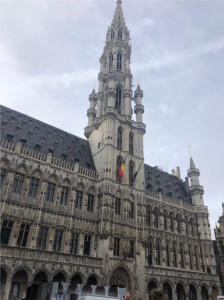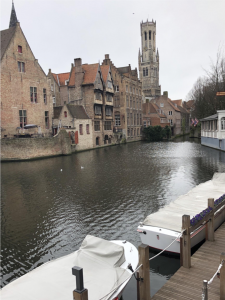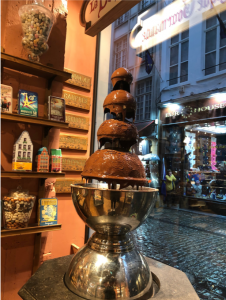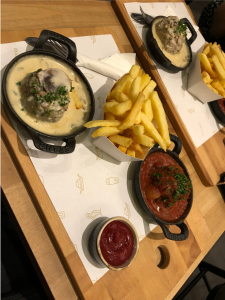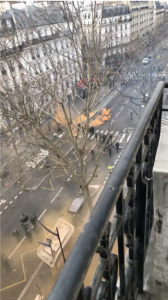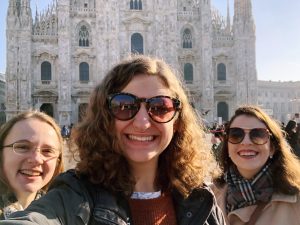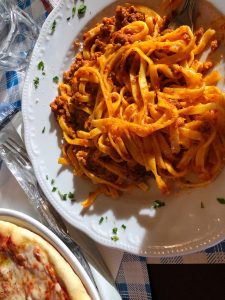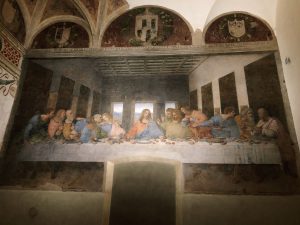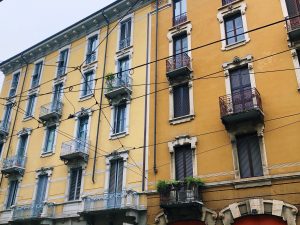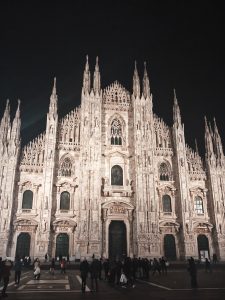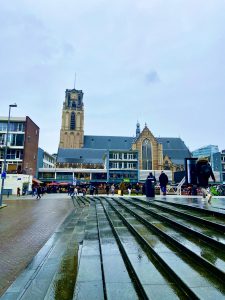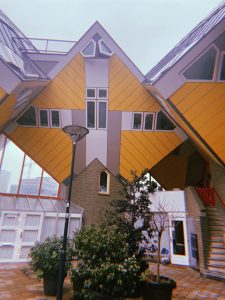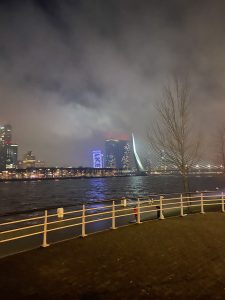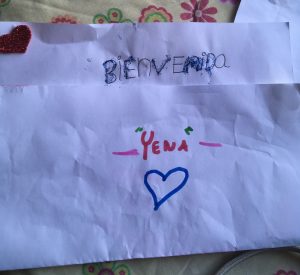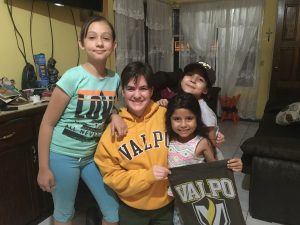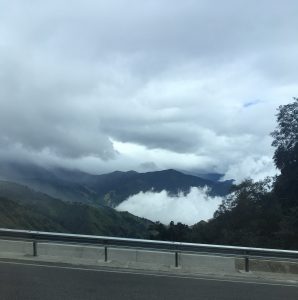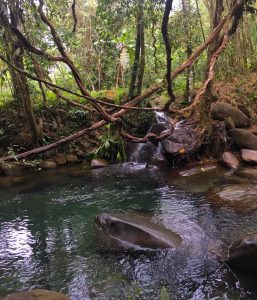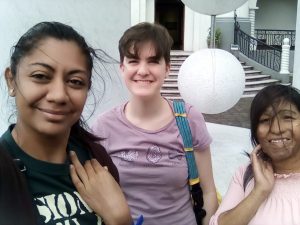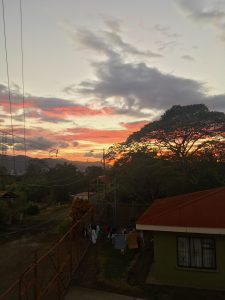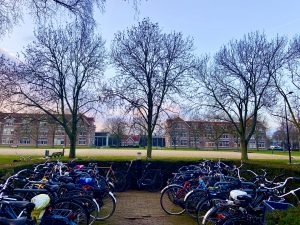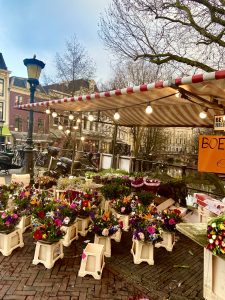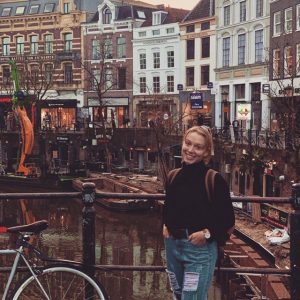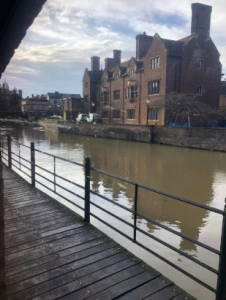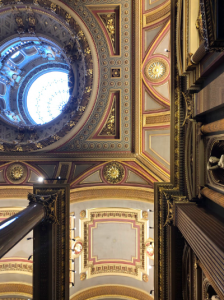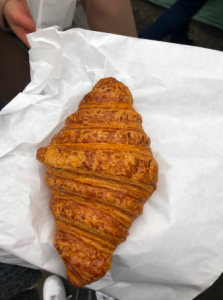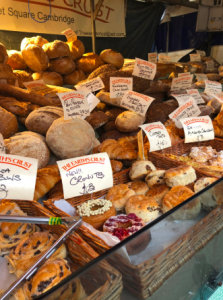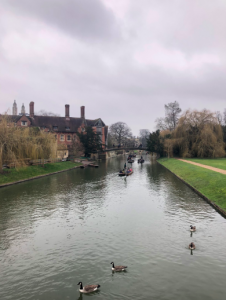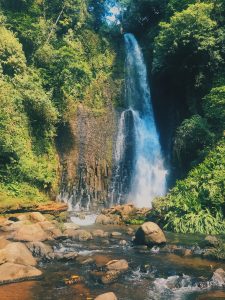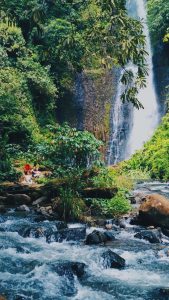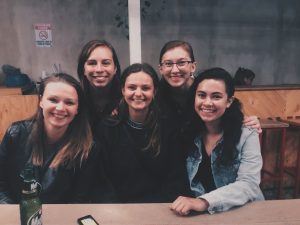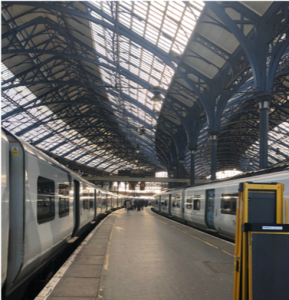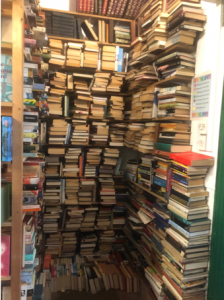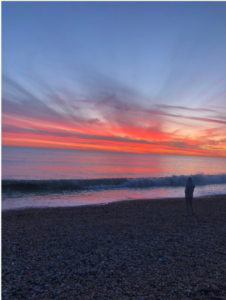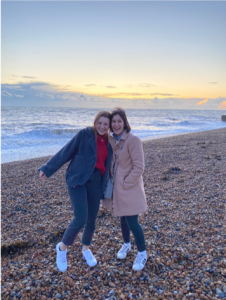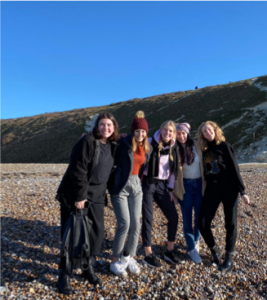Author: Jenna Johnston
Location: San José and Heredia, Costa Rica
Now that I’ve been here for a few weeks, I’m starting to get used to the varied methods of public and private transportation. My Spanish classes at the University of Costa Rica (UCR) started this week, and while Heidi oriented me to the university, she must have told me at least four ways to get to class in the morning, and four more to get home in the afternoon. I realized a few days ago that I had used six methods of transportation in one day: I walked, biked, took a train, took a bus, took an Uber, and took a taxi. So here’s what each of those are like for me in my everyday life.
Walk
My favorite method of transportation, though by far the slowest, is walking. This would be unthinkable to my last-semester self. I biked everywhere on Valpo’s campus — with my back-to-back classes and packed schedule, it was necessary. If I couldn’t bike due to snowy weather or a flat tire, I would lament how long it took to walk everywhere, and would be just a few minutes late to everything.
But here, walking is fun again. Between neighborhood dogs and darting through traffic, it might be the added thrill — pedestrians don’t have the right of way or very many crosswalks, so crossing the road is all about timing. The sunny weather and better views certainly help, as does the fact that here, absolutely no one will care if I’m a few minutes late. My daily walk has been to Casa Adobe, where the Valpo study center is located, about 20 minutes from my house. There are a few different routes between my house and Casa Adobe. I prefer the one that I can’t take if it’s starting to get dark outside. Here, people say streets are dangerous at night if they’re sola — if there aren’t any houses around, so you might end up walking alone. But the sola route has fewer cars to dodge, and it takes me on a road bordered by trees through a local park, so it’s particularly pleasant early in the morning.
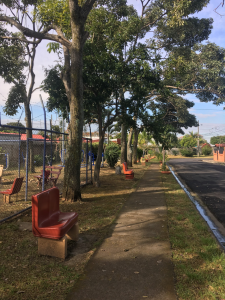
The sola route on a sunny morning.
Bike
Last week, in anticipation of having to catch the 6:45 train for classes at the UCR, I borrowed a bike from Casa Adobe. Despite my bike being my lifeline back at Valpo, it’s more difficult here. With more hills, lots of traffic, and worse sidewalks, biking can be a bit dangerous, especially when I’m coming home during rush hour. With the added steps of retrieving my bike from the garage at home and stashing it at Casa Adobe, biking and walking from my house to the train station end up taking about the same amount of time. Maybe as I get more confident in this new environment, something will change, but I haven’t gotten the hang of biking here yet.
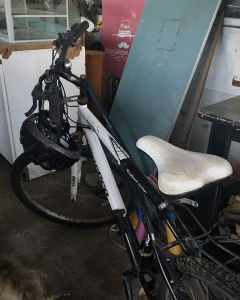
My bike, waiting in the garage for the next time I decide to try it.
Train
The train is definitely the most reliable source of transportation I have access to. It always follows the same schedule, arriving just a few minutes before 6:46 am every weekday. But it’s a far cry from the South Shore Line. Going from the suburbs into the city on a weekday morning means it’s rush hour — every car is packed full of people. I’m not very assertive in a crowd, so I usually end up having to ride a few stops in the precarious closed-in space between train cars, with the floor and walls moving and no handles in sight. It’s a relief once we get closer to the city, people start getting off, and I can make a dash for the stability of the train car, grabbing on to an overhead handle.
The train also gets me to school really early. The train arrives at 7:15, so I have a full 45 minutes to wander around campus, grab coffee, or do some last-minute homework before class begins. I can’t complain, because the it’s the fastest way to get anywhere. The timeworn car may rock back and forth on the tracks as we move, more boatlike than trainlike, but that’s part of the adventure, right? The views out the window, the price, and the time are unbeatable. I love the train.
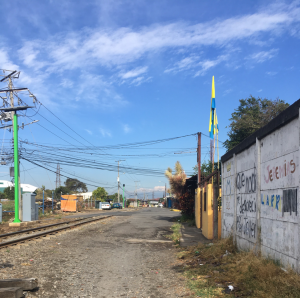
Santa Rosa’s train tracks. I wish I had a picture from the train, but it’s usually far too crowded to get my phone out.
Uber/Taxi
I’ve taken fewer Ubers and taxis than anything else to get around. They’re more expensive, take more steps to catch one, and require conversation. My first weekend here, I took an Uber to and from the mall to buy pants (my biggest study abroad advice — check your suitcase to make sure you actually grabbed all the clothes you planned on taking out of your closet!!). The first driver I had said only a few words, but my driver home was very chatty. While I was worried at first I would make a fool of myself, after he realized I was from the US, we talked and joked about cultural and language differences, and it was a lot of fun. It was definitely a good step toward becoming more confident in my Spanish and acclimating to the culture. Speaking of culture — in Costa Rica, when you take a taxi, you sit in the backseat, but when you take an Uber, you sit in the front. Not totally sure why, but the more you know!
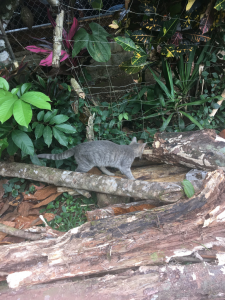
A pic from Longo Mai, because it’s weird to take pictures in Ubers.
Bus
The bus is my ticket home, in more ways than one. The train only runs at rush hour, so when I get out of Spanish class at 1 pm, I take a bus or two instead. Also, as proof that I won’t overstay my travel visa, I bought a bus ticket to a neighboring country before going through immigration. Buses are everywhere — while I’ve heard nothing about a formal timetable, I’ve never had to wait longer than a few minutes for a bus. And I’ve taken them everywhere — to get home from class, to get around my neighborhood, city, or province, and to travel to, from, and within San José.
There are (at least) two ways to get home by bus after class. If it’s close to an hour, I take the direct bus from the UCR to Santo Domingo. This one requires paying a lot of attention — since it’s heading all the way to the city of Heredia, the bus doesn’t like to stop unless it has to, so when I’m approaching my neighborhood, I pull this little cord next to my seat and hope the bus driver will let me off. It’s a comfortable bus though, less crowded than the train, and having a direct route from school to (near) home is a blessing.
The other way to get home is less certain, and I’m not too confident in it yet. I can go to the bus stop, take literally any bus into downtown San José, walk around the corner, and take any bus whose sign in the window lists “SANTO DOMINGO” as a stop. I’m still weirded out by the concept of not worrying what specific bus or route to take, but it does give me freedom and flexibility, since I can take it at any time, and if I want, take a detour into downtown San José to hang out in the city after class.
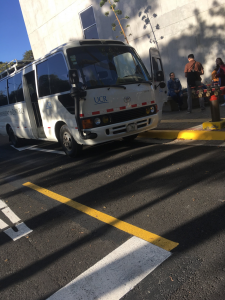
This isn’t the bus I take, but there are so many buses on UCR’s campus. Here’s one of them!
Some Costa Rica things I’ve googled recently:
- micah 6:8 espanol: The Casa Adobe community holds devotions every Sunday evening. I finally made it to one this past Sunday, and didn’t bring a Bible, so I looked up the verse for discussion in both Spanish and English to have them side by side.
- what is vitamaiz: I went with my host family this weekend to visit our grandmother’s house. On Saturday, I saw her stir something flour-like into a pot of hot water on the stove, and a few minutes later she handed me a mug full of a warm, light-colored drink. I wasn’t really sure what it was but drank it anyway – not my favorite, but it was pretty sweet. I saw her pull out the box later, and later googled the name of the product, but I still don’t really know what it is – some kind of corn drink, probably? Some cultural mysteries can’t be solved even by Google!
- how to get US shows in costa rica: I’m an avid fan of The Good Place, so I was very sad when I tried to log into my Hulu account here and it blocked me because I’m not in the United States. Ever since, I’ve been searching for a way to watch the last several episodes and the series finale, but no luck so far! If you have any idea how to do it, please let me know 🙂
- wonder park movie summary: One of my host family’s favorite activities is to watch movies together, usually in Spanish with Spanish subtitles. I can follow along pretty well, but sometimes my limited vocabulary will cause me to miss the point of an important scene. I’ve taken to googling the plot summaries of movies so I can read along and keep track of what’s happening.
- C2 grammar spanish: I’m taking two Spanish classes this month – grammar and conversation. There are six levels from A1 to C2, and I placed into B2 for conversation, but there aren’t enough students to offer B2 grammar this month. I had the choice of an easier or harder Spanish class, and after trying both and some frantic googling to make sure I wouldn’t be in too over my head, I chose the harder class. It’s going to be a challenge, but I think I’m up for it!
I don’t know if I’ll ever feel like I really have a handle on getting around Costa Rica. I told a classmate how to take the bus from UCR to Santo Domingo today, and I can only hope that when I ask him tomorrow, the directions made sense! But I’m grateful for the number of different ways I can get from here to there. It’s exciting having the freedom and ability to go pretty much anywhere, with just a little forethought, a few solid Spanish phrases, and some change in my pocket.
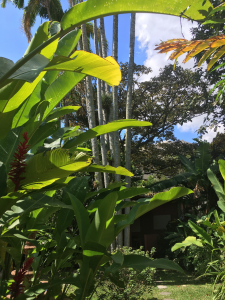
Taking in all the sun I can.

